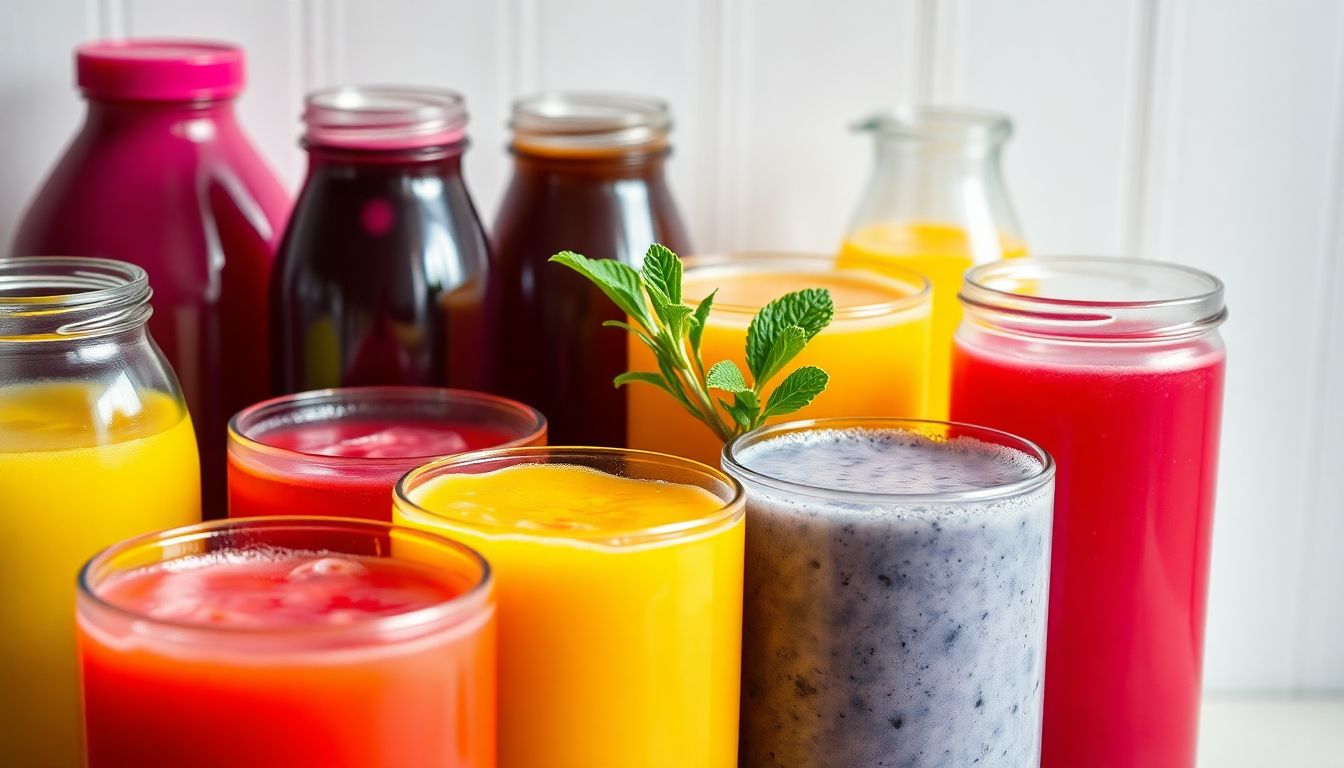
Research shows that about 50% of women are deficient in essential vitamins like D and B12. This lack can lead to various health issues, from fatigue to weakened immunity. With busy schedules, many women find it challenging to meet their daily vitamin needs through food alone. Vitamin drinks for Women offer a quick and effective way to boost wellness. From juices to ready-to-drink options, these beverages can fill in the gaps to support optimal health.
Understanding Your Nutritional Needs
Essential Vitamins for Women
Several vitamins are crucial for maintaining women’s health:
- Vitamin D: Supports bone health; about 42% of women are deficient.
- B Vitamins: Help with energy production and brain function; a study found 25% of women lack adequate B12.
- Vitamin C: Important for immune support; deficiency is common, especially among older women.
Vitamin Deficiencies and Their Consequences
Common deficiencies can lead to serious problems:
- Fatigue: Often linked to low iron or B vitamin levels.
- Weakened Immunity: A lack of essential vitamins can increase susceptibility to infections.
- Mood Changes: Deficiencies in B vitamins can influence mental well-being.
Factors Influencing Nutritional Needs
Different factors can affect how much you need:
- Age: Older women may require more calcium and vitamin D.
- Lifestyle: Active women may need more B vitamins.
- Diet: Vegans and vegetarians might lack certain nutrients, like B12.
Top Vitamin Drinks on the Market
Juice-Based Vitamin Drinks
Brands like Vitaminwater and Naked Juice offer vitamin-fortified juices. These drinks often contain natural sugars, but they can provide a health boost.
Pros:
- Tasty and refreshing.
- Often made with real fruit.
Cons:
- Can be high in calories.
- Some contain added sugars.
A woman named Lisa noticed more energy after switching to Naked Juice for her morning routine.
Powdered Vitamin Supplements
Powdered options like Amazing Grass or Orgain can be mixed into smoothies or water. These are customizable and easy to carry.
Pros:
- Versatile for different recipes.
- Easily adjustable serving sizes.
Cons:
- May require preparation time.
- Some may have a gritty texture.
Ready-to-Drink Vitamin Infusions
Pre-mixed options like Hint Water or Vital Proteins offer convenience and great flavors. They’re easy to grab on the go.
Pros:
- No preparation needed.
- Many tasty flavors.
Cons:
- Can be pricier than other options.
- Might have artificial ingredients.
Choosing the Right Vitamin Drink for You
Understanding Labels and Ingredients
Learn to read nutrition labels effectively. Focus on:
- Servings per container: Don’t forget to check how many servings you’ll actually consume.
- Active Ingredients: Look for vitamins that fit your needs.
Considering Your Individual Needs
Think about your lifestyle and diet. Consulting a healthcare professional can help tailor vitamin intake. For example, if you work out frequently, you might benefit from higher B vitamin levels.
Balancing Vitamin Drinks with Diet and Lifestyle
Remember, these drinks should support, not replace, a balanced diet rich in fruits, vegetables, and whole grains.
Making Your Own Vitamin-Infused Drinks
DIY Vitamin-Packed Smoothies
Here are a few easy recipes:
-
Berry Blast Smoothie:
- 1 cup spinach
- ½ cup mixed berries (strawberries, blueberries)
- 1 banana
- 1 cup almond milk
Benefit: Rich in Vitamin C and antioxidants.
-
Tropical Green Smoothie:
- 1 cup kale
- ½ cup pineapple
- 1 orange
- 1 cup coconut water
Benefit: Boosts hydration and vitamin A intake.
Infused Waters and Teas
Create refreshing drinks using:
- Cucumber Mint Water: Slice cucumbers and add fresh mint to water. Great for hydration and vitamin K.
- Lemon Ginger Tea: Grate fresh ginger and add lemon for a vitamin C kick.
Creative Combinations and Flavor Ideas
Try mixing fruits and herbs. Experiment with combinations like:
- Watermelon and basil
- Strawberry and rosemary
Potential Side Effects and Precautions
Vitamin Overdose and Toxicity
Taking too many vitamins can be risky. For example, too much vitamin A can lead to toxicity. Always consult a healthcare professional before starting new supplements.
Interactions with Medications
Some vitamin drinks can interact with medications. It’s crucial to read labels and ask a doctor.
Allergies and Sensitivities
Check ingredient lists to avoid allergens. Common allergens include gluten and artificial sweeteners.
Conclusion
Incorporating vitamin drinks can enhance your health and energy levels. They should complement your regular diet while also fulfilling nutritional gaps. Consulting healthcare professionals is vital for personalized recommendations. Maintain a balanced diet and use vitamin drinks as supportive tools in your wellness journey. Prioritize your health and enjoy exploring various delicious options available!






Leave a Reply